US endangers afflicted Iranian children for political gains
For most of us it takes half an hour to shower, get dressed, have breakfast and leave for work.This typical morning routine could take even less time, though not for butterfly children nor for the mother getting her autistic child ready for the care centre.
It’s a full working day from 9 to 4 for trainers and trainees; that’s up to 12 kids and youngsters a day.
At the Iran Autism Association there are children with medium to severe autism. But hope prevails. Repetition, habit, belief is the order of the effort’s mantra to improve kids’ conditions.
There’s much to say on the matter of ASD and EB and the sanctions impeding the treatment of theses innocent young persons.
Autism is a neurological disorder, usually graded in severity along a spectrum, ASD. It causes problems with thinking, feeling, language, and relating to others.
And so, medications prescribed serve as a means of chemical restraint, rather than having a legitimate therapeutic purpose.
Some patients are treated for conditions often associated with autism, including anxiety, hyperactivity, and aggression; everything from sleep disorders to violent meltdowns.
The Iran Autism Association is a 7-year-old NGO that started its program for severe cases six months ago.
But resources are still limited and demand on the part of families has been higher for boys than girls to receive care outside the home.
We spoke with a number of professionals at the association, mostly young trainers.
It was touching to see them put their energy to use in child care with a complication.
Medication, as part of the treatment for autism, can manage some of the symptoms.
We provide occupational therapy for sensory, motor, and cognitive functions, speech therapy, behavioral therapy, and also music and art therapies such as painting with watercolor and so on for children so they can acquire skills by the age of 7, enter the education and school process and learn reading and writing skills.
Our interventions will help the children to easily perform simple and repetitive tasks after a certain age.
Sina Tavakkoli, Education and Rehabilitation Research Unit, Iran Autism Association
The sensory issues autistic people have dysregulate them further, which makes training all that much more sensitive.
For example, should a care-giver yell at a child in an effort to rein in behavior, it’ll likely have the opposite effect.
We met Mr Fallah, a lead-trainer, as he was working with some patients. His background is in sports medicine.
Every child is different. One can reach a particular level in a month, another might take a year.
If we consider 10-thousand autistic children, every single one of them needs their own special care. It’s not like one guideline applies to all. That’s what makes things more challenging.
The coach’s decisions at the moment matter; the decision made at the moment could be a right or a wrong one.
Milad Fallah, Autism Coach
We shall look into how sanctions have hampered the inflow of medical supplies and pharmaceutical raw materials to this country.
Domestic corruption, combined with sanctions, has further degraded the Iranian economy, which means families can’t readily buy medical supplies even if they were to be readily available.
Autism, and the Iranian Autism Association, is a case study in deprivation and survival by self-help and domestic help. But autism is not the only condition at stake.
The families are procuring the medications by any means, although the economic problems and the massive inflation in their prices have created challenges for accessing the medicines.
Currently, families are facing problems in getting their hands on medicines used for seizures including Depakote and so on.
Medicines prescribed for hyperactive children like Ritalin are among those the families report to have become hard to find or increased so much in price. For example, a pack of Ritalin which used to be sold for 45-thousand tomans is now 125-thousand.
This rise in price for a medication that the child is constantly using is too much.
Sahraneh Javadi Asayesh, Manager, Health Unit of Iran Autism Association
EB, Epidermolysis Bullosa, is a rare hereditary disease or condition, (sufferers are known as butterfly children) It usually manifests in infancy or early childhood with very fragile skin that develops blisters or wounds like third-degree burns.
There is no cure which means the flow of medical equipment for pain relief and blister control must never stop.
With age, however, symptoms of mild forms of the condition can improve. Our skin is our protective cover. Imagine being uncomfortable in your own skin 24/7, or every hard flat surface being a hazard, which, if you bump into, it will painfully damage and sear your skin.
The US claims that food and medications are not subject to sanctions. As the father of an EB patient as well as 750 other EB patients, I can tell you that it is not so in practice. I am feeling the sanctions. I am feeling the sanctions for example in dressing here for EB patients.
Hamidreza Hashemi Golpayegani, Head, EB Home NGO
EB patients, or butterfly children, live with constant pain and stress of varying degrees.
These patients often require extensive bandaging from head to toe and are at risk of malnutrition and esophageal strictures.
Bathing and wound management can take 3-5 hours at a time. If not bandaged properly, in fact, blistering and flaking can occur even the sufferer is just sitting down for a chat.
Described by US dermatologists as “the most painful disease you’ve never heard of,” EB is a genetic mutation that occurs in every 1 in 30,000 to 50,000 live births globally.
But each butterfly child suffers enough pain for the whole of humanity and cannot be overlooked.
EB patients are referred to as ‘butterfly children’ because of the butterfly-like delicacy and fragility of their skin, which can grow over their bones. Relief is all that they and their families seek.
The only relatively real relief is through specialized foam dressings that reduce and protect blisters, the best of which are made by the Swedish pharmaceutical company Mölnlycke.
For Iran’s 800 to 1200 EB sufferers accessing the supplies has become close to impossible since the 2018 US pullout from the JCPOA and the crippling sanctions that ensued.
But then in May 2020 UNICEF made a surprise announcement that a German-financed shipment of wound dressings from the Swedish company had been procured by the UN and shipped to Tehran.
The shipment, which weighed 5.8 metric tons, was to be a one-time shipment but came at a welcome time given during the COVID-19 inflicted travel restrictions, which had stopped respite in the form of wound dressings and bandages coming in with travelers.
To see how far the children of today’s focus have come, let’s go back to the Autism Association.
US sanctions and restrictions on the export of drugs and medical equipment to Iran have shortened the breath of all patients suffering from special diseases and conditions, such as cancer, hemophilia, epilepsy and thalassemia.
The US claims that medications aren’t subject to sanctions. But in practice, they are, as evidenced by the pharmaceutical companies who’re saying they’re having problems importing medicine.
The importers and producers are facing problems bringing in raw materials. They’re also concerned with foreign currency exchange rates. We might suddenly realize there’s a drug that plays a key role in treating autism, although some might object, arguing that there’s no cure for autism.
But children are using medications they need to improve their attention and concentration. They need to calm down as they’re mostly hyperactive and are restless.
This means that we need medicines used for managing other symptoms for autistic children, which are quite expensive.
Foad Mohammadi, Board of Directors, Iran Autism Association
Mr Mohammadi believes it’s paramount to import drugs for quality. That’s contrary to our lady doctor’s opinion. But they agree on one thing: that it matters which company Iranian or otherwise the kids buy from.
You see, for example, the Depakine pills that are produced overseas are way better in terms of quality compared to their domestic counterparts, both in terms of controlling restlessness and lack of attention and focus.
On the other hand, we are experiencing different effects from the same medicine which is produced by two companies.
For example, Risperidone, which is being produced inside the country, especially by the Sobhan Pharmaceutical Company, varies in its effectiveness.
I’ve seen that in the case of my own child who responded very well to Risperidone made by Sobhan but not to that of Dr. Abidi’s (pharmaceutical) company.
We never understood why this difference exists.
Foad Mohammadi, Board of Directors, Iran Autism Association
Medicine should be available locally
You see, Iranian pharmaceutical companies are also working very well, but what’s important to us is the accessibility of the medications for the families.
We don’t want a family of a child who’s displaying behavioral problems all day long to be unable to buy the medication they need in their own city. We don’t want them to have to travel long distances to Tehran or its nearby cities just to purchase the drugs.
This is heartbreaking. It would be very helpful if the pharmaceutical companies can meet the minimum needs of the families and distribute their products across the country.
Sahraneh Javadi Asayesh, Manager, Health Unit of Iran Autism Association
Although less available than before the sanctions, there are still plenty of vitamins and ordinary drugs in the market but the US is doing it’s utmost to prevent Iran from purchasing vital medicine and necessities, even for cancer patients.
Helping children with debilitating conditions means going as far as preparing them for a measure of independence and even holding a job.
With Iran’s unemployment rate of 10 percent or more, it may sound like an unrealistic ambition. But it doesn’t seem so far fetched when looking at paintings by autistic individuals.
But without necessary medication and facilities, how likely is the achievement of this ambition?
Autistic children are working in production lines everywhere; you can see that in our country too.
Some are answering the phone, doing simple tasks such as typing. They’re not distracted while they work. Or they can be presenters in a place like a museum, showing the visitors around, because that’s a repetitive task and they might have to do it 20-30 times a day.
This is a simple task for which autistic children can be easily trained. They are usually quite punctual, don’t talk on their phones or get distracted by their cell phones like other people, and are generally more organized in their jobs because they’re doing the jobs based on their specific talents.
Sina Tavakkoli, Education and Rehabilitation Research Unit, Iran Autism Association
One wonders how that would help a society with less than satisfactory employment levels for the healthy, let alone the afflicted.
When we talk about employment for autistic children, some might say there are many people unemployed in Iran, let alone autistic ones. But it’s not a matter of who’s normal.
These children need supportive regulations, and those laws have been written for them. The laws have been enacted by the Parliament and communicated to businesses that can use these children as their workforce with special conditions.
Part of their salaries is paid by governmental organizations, so they can be employed. We can’t assume that all rights are ours and we’re the only ones entitled to go on the streets, have a walk in the park, visit amusement parks, and go to cinemas, just because we’re healthy and don’t suffer from any disability.
An autistic child has the right to vote. They and their fathers are paying taxes. They are also paying municipal taxes.
Sina Tavakkoli, Education and Rehabilitation Research Unit, Iran Autism Association
The professionals and parents are looking to the greater Government, including the Legislature, for more help, as well as to their own capabilities.
5-6 years ago some parents had declared they wanted to leave Iran for countries with nursing homes for autistic people; an astronomically expensive option with little to no chance of acquiring foreign residency.
We engaged in talks with the Parliament, especially with the Health Commission. They helped us sign into law a national autism document which we drafted.
The document was prepared by Iran’s Autism Forum’s scientific experts but had been stalled for years in the parliament. That’s why we started our work and asked again. They helped us eventually.
But the national autism document with all the aspects considered for it became a two-page document dubbed “The National Autism Program” which was announced and signed by three ministers whose organizations are known as being in charge of autism [sic].
Foad Mohammadi, Board of Directors, Iran Autism Association
Others parents, however, said they were willing to work together and help establish a special nursing home in Iran. Dr Momeni in Sweden volunteered his services.
The parents are involved and extend their services beyond their own suffering to help train classrooms full of kids. We have a case right here, predominantly active even after losing her own child to an indirectly autism-related accident.
These are some matters that go back to the human beings themselves to decide what they’re going to do now that they’re living in this world.
What was their purpose for being born? If they’re here to make themselves useful and take steps to help their peers, they need to understand that this is something that could happen to them too.
I think we should want something for others that we want for ourselves and need to take this step.
Fariba Nasiri, Manager, Omid’e Tarasht Autism Rehabilitation Center
In 2019 “Some 62 centers offering treatment and rehabilitation services to autistic patients were operating under the medical sciences university’s supervision nationwide, which mostly offer services to those financially struggling patients,”... “A supportive package including occupational therapy, speech therapy, behavioral interventions, and counseling services have been scheduled to be provided to these children and their families by the aforesaid centers,”...
Tehran Times quoted the Health Ministry’s head of the department for transplantation and treatment of diseases at the time, saying the Ministry had doubled the subsidies allocated to 4,000 autistic patients under the Welfare Organization’s coverage, granting 10 million rials (nearly $250), per patient.
Well, the costs are very high. Based on our average, if a family wants to continue the child’s behavioral therapy, it needs to pay at least 5-million tomans per month.
This figure is too much for the families, given that many of them aren’t covered by any insurance or services, so their problems will grow by the day.
Or take this, for example, that most autistic children need to be anesthetized to receive their routine dental checkups, and that anesthesia is too costly for the families.
Foad Mohammadi, Board of Directors, Iran Autism Association
A problem that definitely increases with age is education and training.
They’re growing up; they’re teenagers and adults now.
One of the problems we’re facing is that we don’t have high schools for these children. Most of the schools are secondary or early high school years.
The second issue is that there aren’t enough centers where they can learn professions. Children who have a moderate to good performance can learn professions and art so they can enter society and be employed.
Also, we don’t have care centers for those who have weak performances. The number of those centers in the country could be fewer than your fingers.
Sina Tavakkoli, Education and Rehabilitation Research Unit, Iran Autism Association
It is estimated that about 320,000 autistic individuals can be identified in Iran, approximately 35,000 of them being children under school age, under 7 years of age.
In the month that followed, Iran’s Welfare Organization reportedly launched an online autism screening website for parents with children aged 2 to 5 years to refer to.
Children found susceptible to autism were to be referred to the nearest welfare offices to confirm the disorder and receive subsequent rehabilitation services.
Our figures show there are about 30-thousand autistic people in Iran. But considering the global rates which may be true for Iran too, there are many more cases in Iran.
It’s curious how many cases are concentrated in some areas but no one has conducted any pathological study to establish the underlying cause.
One example is the Khuzestan province. I was born there. There is a registered population of autistic people there which is larger than anywhere else.
What’s the reason? We don’t know. The same goes for the northern parts of the country.
Foad Mohammadi, Board of Directors, Iran Autism Association
In January it was reported 90 thalassemia patients lost their lives last year due to US sanctions and a lack of drugs. In addition another 60 [young] patients have died in the current year.
A Human Rights Watch report from October 2019 references a letter sent by Swedish Mölnlycke to EB Home, Iran’s largest NGO supporting EB patients.
The UN report confirmed the company had decided not to conduct any business with Iran because of US sanctions.
According to EB Home, at least fifteen butterfly children have died over the last year. As for our ASD trainers, they have bitter complaints but high hopes of their own.
Our main objective is to be able to integrate autistic children into society.
We don’t want the children to be separated, or create a facility to keep them in, as much as we believe the elderly have to be present in the society as a consultant and not be confined to nursing homes.
That’s why the goal is integration.
Sina Tavakkoli, Education and Rehabilitation Research Unit, Iran Autism Association
VIDEO | Homes under occupation: When living rooms become military posts
War could reach your own doorsteps: Iraqi anti-terror group warns Iran’s enemies
IRGC: Iran holds upper hand in determining any war’s endgame
'Fingers on trigger': Iran warns of strong response while signaling openness to 'fair' deal
Iran’s power makes any hostile military action 'high-risk': IRGC deputy cmdr.
India's PM Modi pays tribute to veteran politician killed in plane crash
Slovak PM describes Trump’s state of mind as 'dangerous' to EU leaders
Yemen’s Ansarullah warns US of aircraft carrier deployment in Red Sea


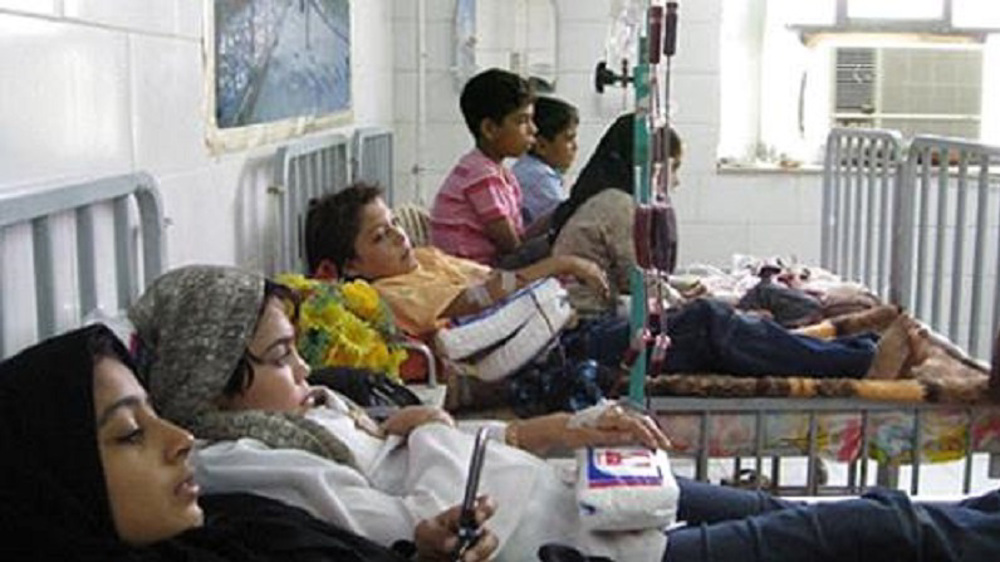
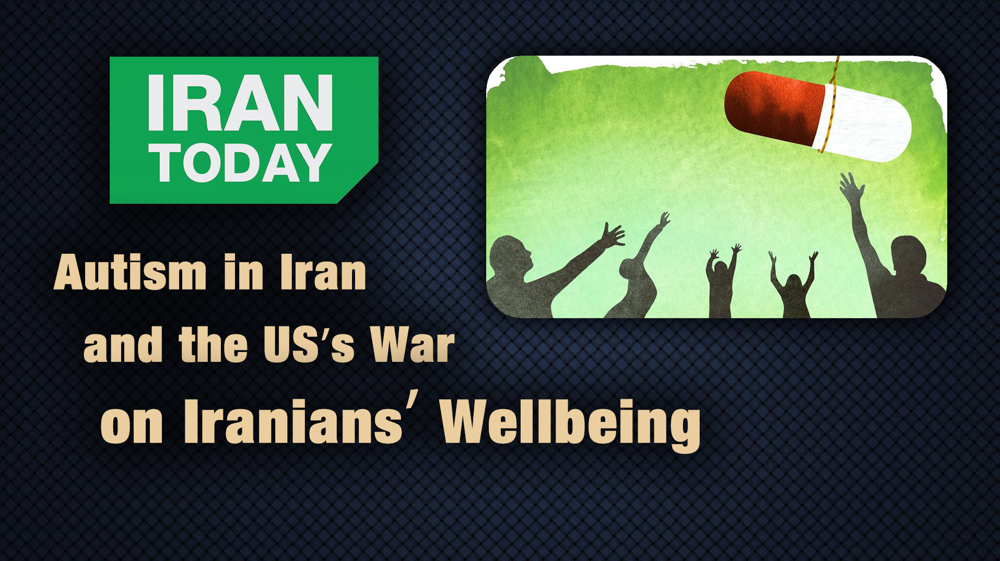
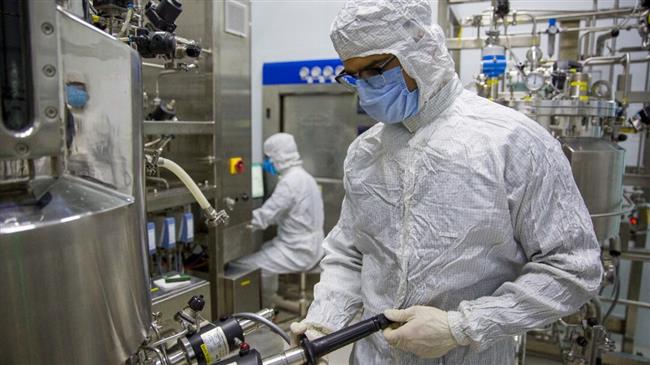
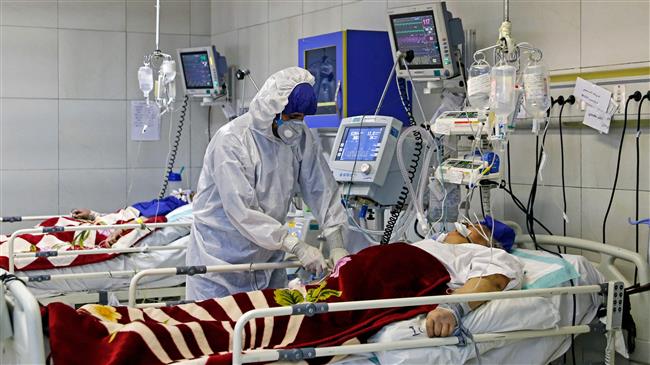
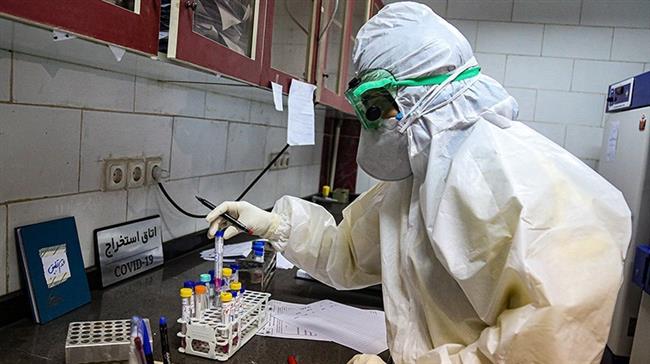
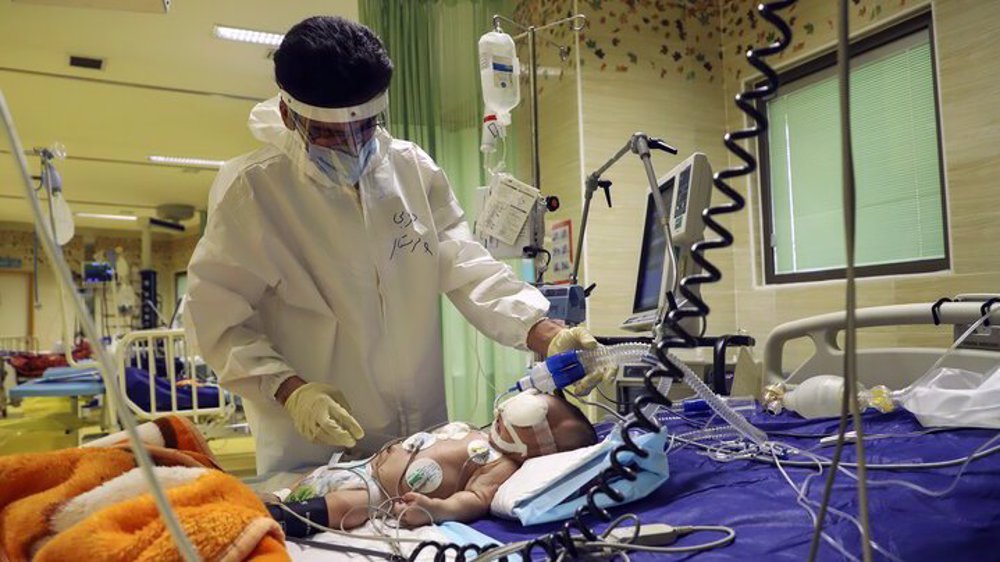
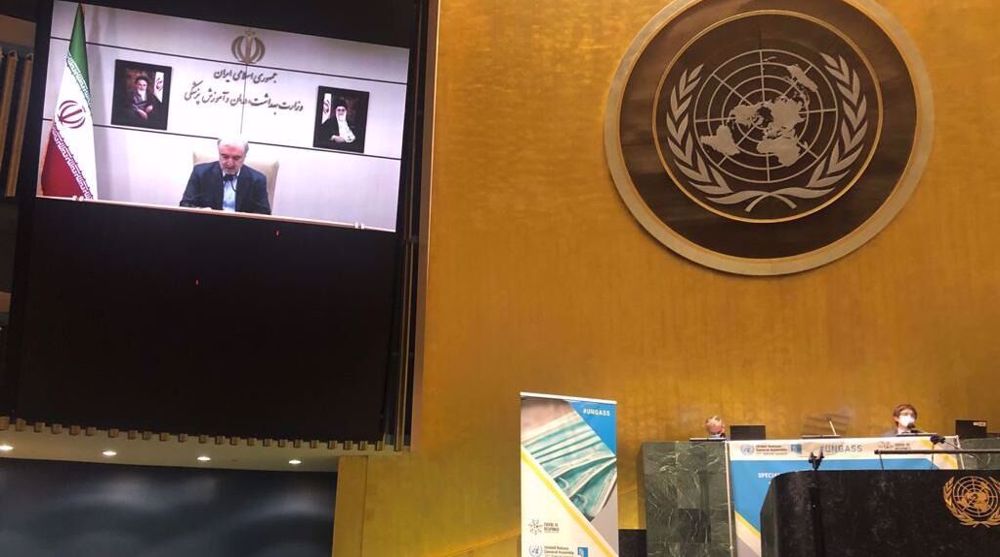
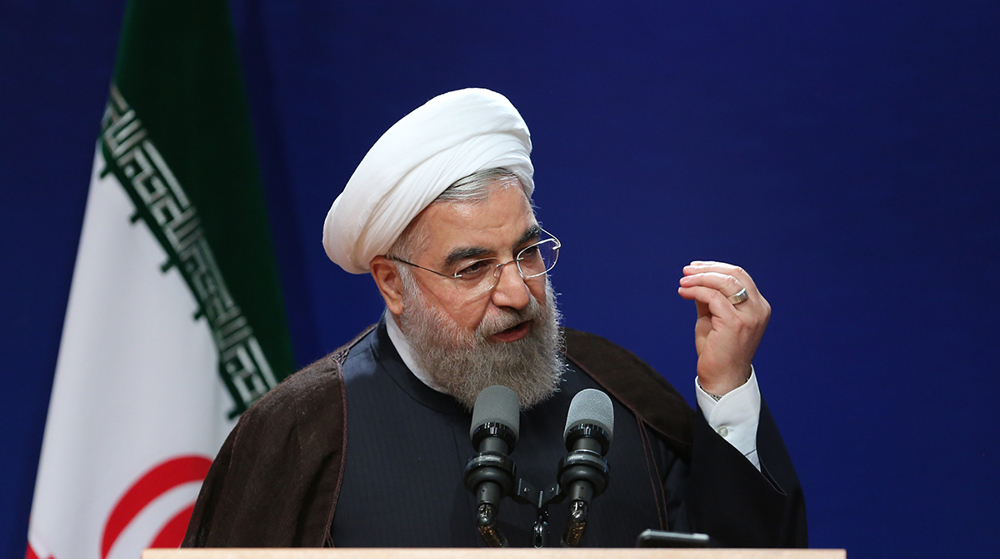
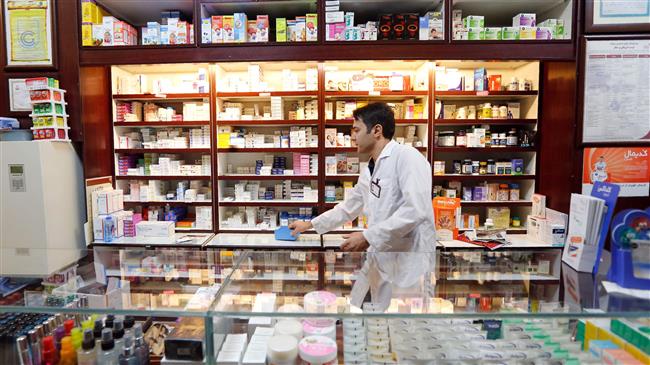
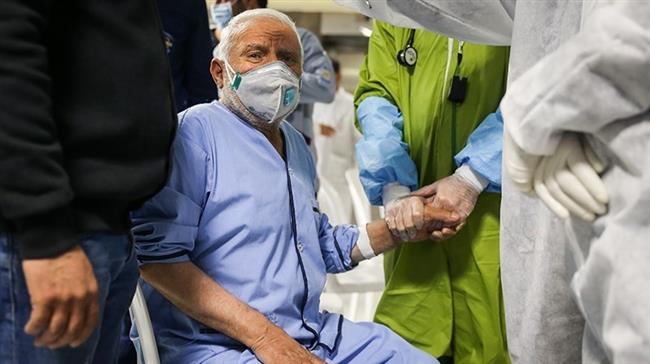
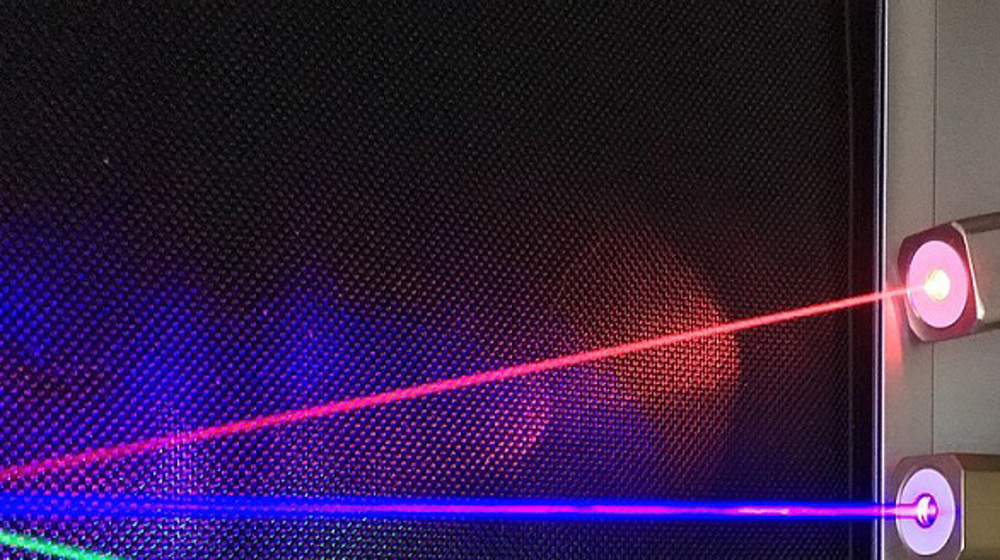
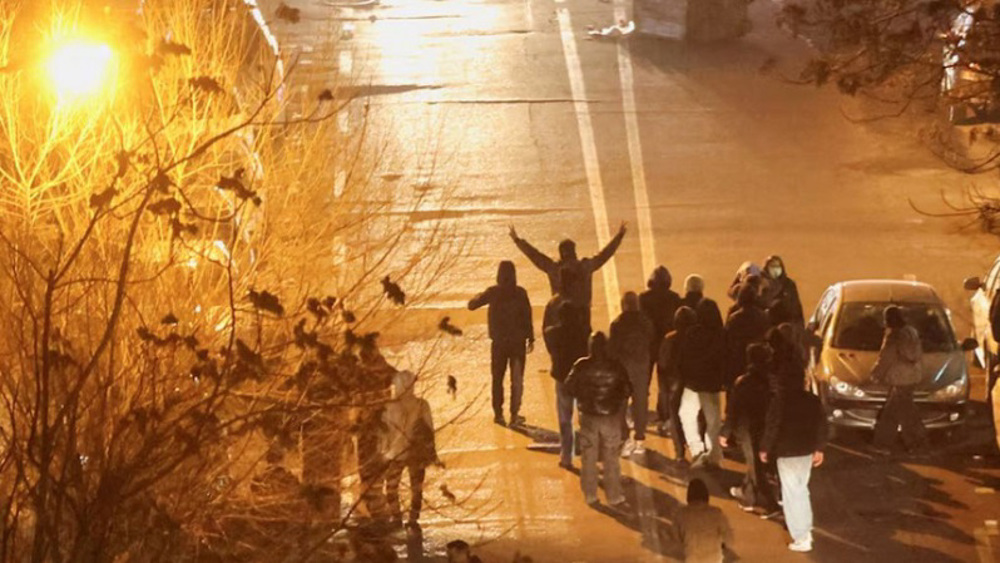





 This makes it easy to access the Press TV website
This makes it easy to access the Press TV website